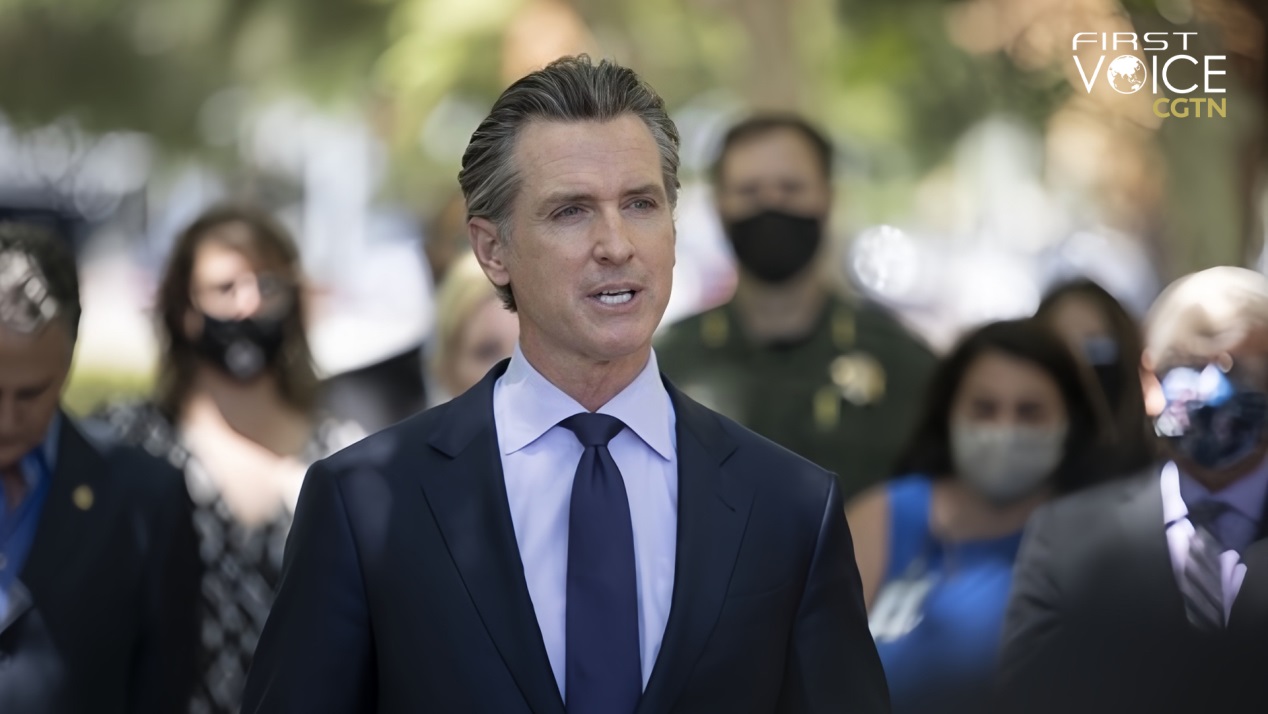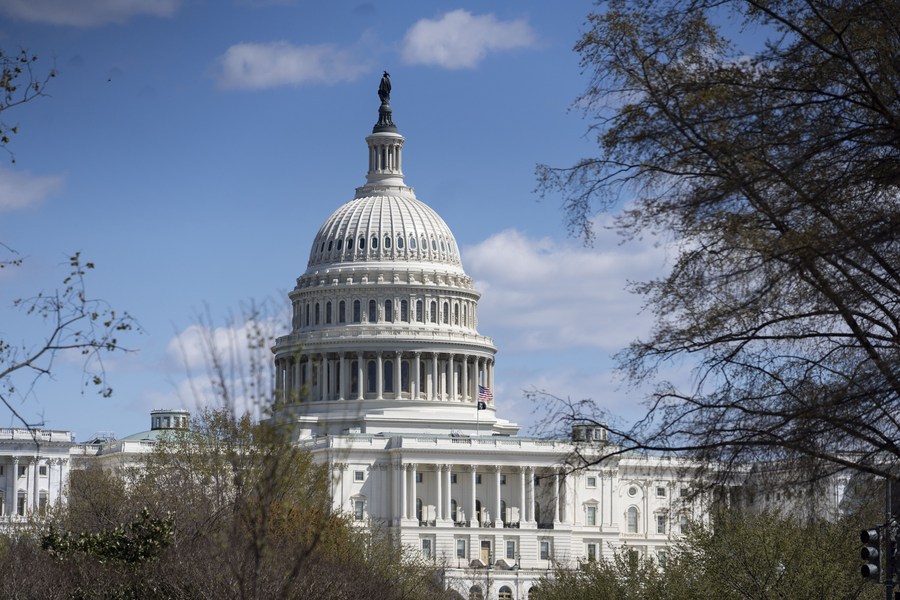
California Governor Gavin Newsom. /Xinhua
California Governor Gavin Newsom. /Xinhua
Editor's note: CGTN's First Voice provides instant commentary on breaking stories. The column clarifies emerging issues and better defines the news agenda, offering a Chinese perspective on the latest global events.
U.S.-China cooperation is not a zero-sum game, California governor Gavin Newsom stressed during his China trip this week. As the first U.S. governor to China in more than four years, Newsom emphasized the importance of multilateralism in managing international relations and expressed his high appreciation for relations with China.
Just as Newsom said, no other bilateral relationship is more important than the one between the U.S. and China. Accounting for more than a third of the global economy and nearly a quarter of the world's population, China's and the U.S.'s interests are closely intertwined. A stable Beijing-Washington relationship is vital for not only the two countries but also the rest of the world.
Against this backdrop, the importance of open lines of communication between the two countries cannot be overstated. Considering Beijing-Washington's sharp lines of divisions and anti-China hostility within the U.S. Congress, Newsom's visit to Chinese cities including Hong Kong, Shenzhen, and Beijing is anticipated to bridge the gaps and create conditions for Washington to correct its previous misunderstandings of China. This, without doubt, is a positive sign for China-U.S. ties.
It is worth noting that Newsom's China trip comes after a slew of interactions between Beijing and Washington. Earlier, high-level American officials including U.S. Secretary of State Antony Blinken, U.S. Treasury Secretary Janet Yellen, U.S. climate envoy John Kerry, and U.S. Secretary of Commerce Gina Raimondo traveled to China. In the meantime, member of the Political Bureau of the Communist Party of China Central Committee and Chinese Foreign Minister Wang Yi, at the invitation of Blinken, will visit the U.S. from October 26 to 28.

U.S. Capitol building in Washington, D.C., U.S. /Xinhua
U.S. Capitol building in Washington, D.C., U.S. /Xinhua
The intensive interactions demonstrate the two countries' intention to steer their relationship back onto the right track. Frequent exchanges serve as a window of opportunity to manage divergences, prevent bilateral relations from downward spiraling, and improve the atmosphere for stabilizing China-U.S. ties.
However, divided views within U.S. politics on China are one of the biggest risks to healthy Beijing-Washington relations. While Newsom-represented state governors criticized the concept of decoupling and stressed the importance of Beijing-Washington ties to the future of the U.S. and its people, certain U.S. Congressmen have been obstinate in zero-sum mentality and view China from a black-or-white perspective.
Senate Minority Leader Mitch McConnell, for instance, deemed China, Russia, and Iran as the new "axis of evil" last week. "It's an emergency that we step up and deal with this axis of evil – China, Russia, Iran – because it's an immediate threat to the United States," McConnell said in an interview with Fox News.
This is typical Cold War nostalgia. Under the zero-sum mentality, McConnell-represented politicians attribute every headache that American society is facing to countries with different political systems, and China always bears the brunt. In this context, these anti-China hawks, despite the urgent need to improve ties with the world's second-largest economy, have been straining every nerve to kick China from the global supply chains in an attempt to stifle the country's growth, which, in the era of global integration, has repeatedly turned out to have made ordinary Americans the biggest victim.
While Beijing has demonstrated its utmost sincerity in improving ties with Washington, a divided America on China is one of the biggest threats to stable China-U.S. ties. As Chinese President Xi stressed, the foundation of China-U.S. relations lies among the people and the vitality lies in sub-national areas. As a state governor, Newsom's visit, in a sense, demonstrates the American people's call for a better relationship with China.
The U.S. holds the ball – will it step up and answer its people's call for collaboration with the world's second-largest economy? Time to make a move.
(If you want to contribute and have specific expertise, please contact us at opinions@cgtn.com. Follow @thouse_opinions on Twitter to discover the latest commentaries in the CGTN Opinion Section.)